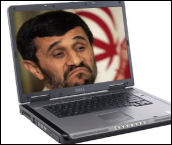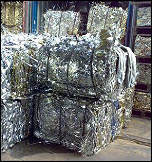 The Senate Energy and Natural Resources Committee held a hearing yesterday, reported here by the Oil & Gas Journal, on the possible impact of exploratory oil drilling by non-U.S. companies in Cuban territorial waters in the Gulf of Mexico. Michael R. Bromwich, Director of the U.S. Bureau of Safety and Environmental Enforcement (“BSEE”) tried to assure the Committee that U.S. companies could respond quickly to an oil spill in Cuban waters notwithstanding the U.S. embargo on Cuba.
The Senate Energy and Natural Resources Committee held a hearing yesterday, reported here by the Oil & Gas Journal, on the possible impact of exploratory oil drilling by non-U.S. companies in Cuban territorial waters in the Gulf of Mexico. Michael R. Bromwich, Director of the U.S. Bureau of Safety and Environmental Enforcement (“BSEE”) tried to assure the Committee that U.S. companies could respond quickly to an oil spill in Cuban waters notwithstanding the U.S. embargo on Cuba.
He said that the US Departments of Commerce and the Treasury have a long-standing practice of providing licenses to address environmental challenges in Cuban waters, and that DOC’s Bureau of Industry and Security has issued a number of them for booms, skimmers, dispersants, pumps, and other equipment and supplies to minimize environmental damage from a spill. “I believe the Commerce and Treasury departments would move quickly to approve more licenses if needed,†he said.
Not all witnesses before the Committee shared Bromwich’s rosy view of our ability to respond to a Cuban spill:
Paul A. Schuler, president of Clean Caribbean & Americas, an international spill response cooperative operating in the region, said only three US companies have such licenses that must be renewed every 1-2 years. “It needs to be handled in advance, and not as an ad hoc action as part of a response to an oil spill,†Schuler said. “Others would have to go through the entire licensing process, and my experience has been that it has not been quick.â€
I suspect that exporters with experience obtaining licenses from BIS and OFAC might also share Schuler’s scepticism about whether the agencies could move quickly on licenses by U.S. companies to provide clean-up services in Cuban waters (which would require an OFAC license) and export equipment to be used in that clean-up effort (which would require a BIS license).

 Posted by
Posted by  Category:
Category: 

 New-York based electronics wholesaler
New-York based electronics wholesaler 
 Last week the Bureau of Industry and Security (“BIS”) issued a
Last week the Bureau of Industry and Security (“BIS”) issued a  While Washington is as empty as a turkey coop on Thanksgiving, the White House
While Washington is as empty as a turkey coop on Thanksgiving, the White House 

